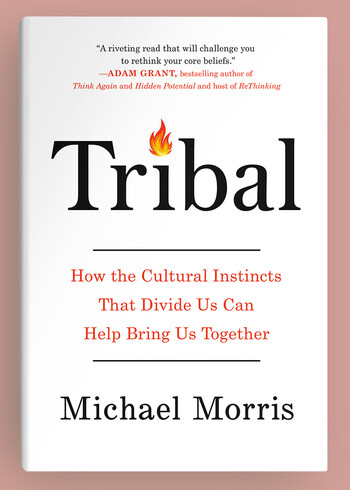On the surface, the three events might seem entirely unrelated: an against-all-odds win by the South Korean national soccer team, a heroic effort to stabilize a Japanese nuclear-power plant, and the end of Prohibition in America. Michael Morris, a Columbia Business School professor and acclaimed psychologist, would disagree. They all came about, he argues, because of tribalism, a cultural dynamic that has in recent decades been chronically misunderstood.
While pundits deride tribalism as a force that has polarized communities, galvanized extremist movements, and ignited wars, Morris offers one of social science’s most vilified buzzwords a reputational makeover. In Tribal he presents a series of global case studies — both historical and current — that show that tribalism can be an efficient engine of cultural change. In Morris’s estimation, such collective human action can bridge divides and, yes, save lives. In fact, he argues, tribalism may be one of humanity’s most underappreciated superpowers: the very reason the human race has been able to thrive.
“To be sure, tribal psychology is part of the problem in many of today’s conflicts,” he acknowledges in the book’s introduction. “But it can also be part of the solution.”
To support his argument, Morris ushers readers through an engaging narrative that demystifies, without oversimplifying, complex concepts about the world of human instinct. He introduces three distinct ideas related to the ways humans are wired to behave and interact: the peer instinct, which encourages us to conform to what most people do; the hero instinct, which incites us to emulate those we admire; and the ancestor instinct, which inspires us to do as those have done before us. All three of these are tribal instincts, argues Morris: they bind people together in pursuit of goals that fellow members of their group would praise.
Of course, these instincts can lead us to act in ways that are immoral, but they can also be immensely powerful levers for progress. They can stabilize countries, companies, and communities by creating cohesion, understanding and tolerance.
“At a time of ethnic strife, pandemics and climate crisis, our human capacity to act collectively is more important than ever,” Morris asserts. “Our tribal instincts are our greatest tool for group cooperation — we should not fear them but learn to harness them. They offer some hope to save us from ourselves.”
Against a backdrop of what can feel like jarring political change in the US and elsewhere, Tribal serves as both a sobering explanation of how we got to where we are and a tool for navigating the future. Impressive in scope and engrossing in style and tone, it takes readers on a riveting journey into the human brain and through our evolutionary history.




